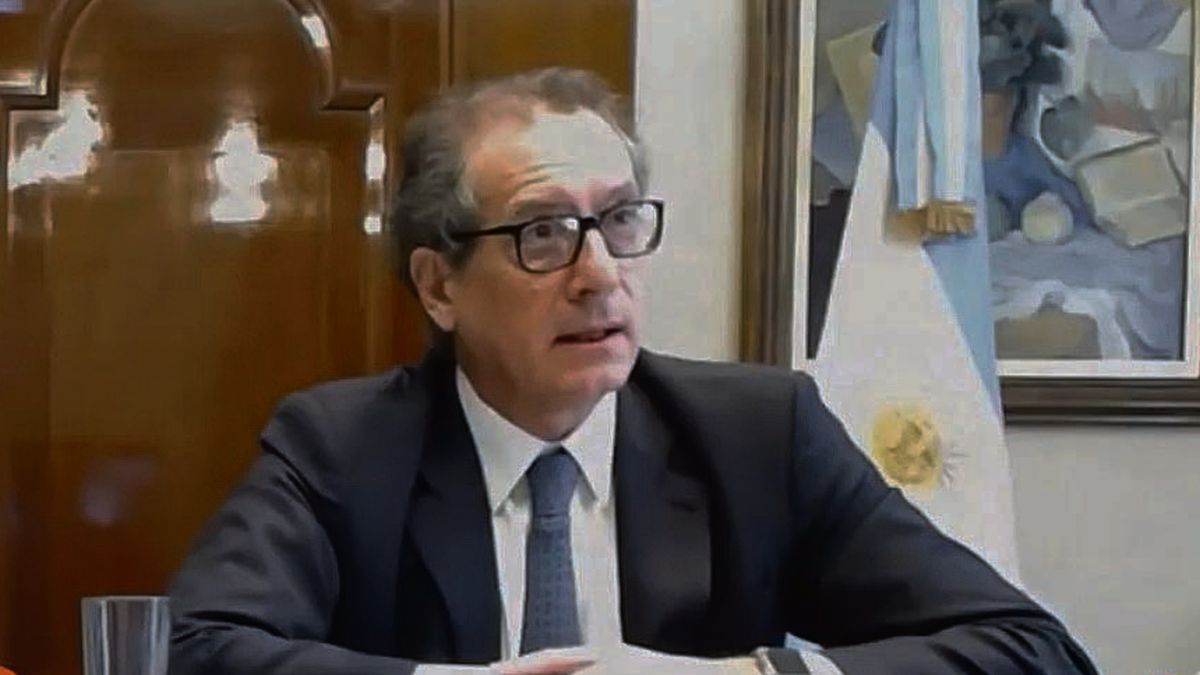The backdrop for the meeting was the complaint by some companies about the difficulties in accessing inputs from abroad that the latest BCRA regulation would have generated. On Tuesday, October 5, the monetary authority decided to limit the advance payment of imports until the end of the month, a mechanism that had exploded in recent months and had contributed to a greater outflow of foreign currency in September. As is often the case in times of pressure on the exchange rate gap, some importers speculate and cancel the bulk of their purchases abroad in advance to guarantee a cheaper dollar than they hope to get later in the event of a devaluation (something that the Government discarded). These practices led to US $ 400 million more being paid last month than the imports actually entered into the country.
The measure, which at the end of the month the BCRA will have to define whether to extend or discontinue, twisted the trend and allowed a rebound in net reserves. The Central went from selling an average of US $ 97 million per day in the five previous wheels in the wholesale market to buying US $ 100 million per day in the five subsequent days. Since then, it has already bought more than $ 700 million net. This positive dynamic, in a month of unfavorable seasonality, is what now opens the door to a possible relaxation of the controls that prevent making an advance payment of a portion of the merchandise, which, according to the businessmen, is often a requirement. to ensure that foreign suppliers ship their products.
At the meeting, they discussed this point. The BCRA head said that the Government’s commitment is “Prioritize the use of foreign exchange to sustain the process of recovery and economic growth”. From the monetary authority, they explained that the intention is to correct the obstacles that may affect the productive sector “Without altering the purpose of guaranteeing the stability of the exchange market.”
In that sense, Pesce told industrialists that as long as companies maintain “Customary commercial practices will continue on the path of removing regulations”, such as those arranged to favor investments destined to generate exports or the free availability of foreign currency of between 5% and 15% of incremental sales. Specifically, as this newspaper was able to reconstruct, the official told them that the idea is to guarantee that there is no “stockeo” that affects reserves with imports much higher than those that firms need to produce.
One of the businessmen present at the lunch, who defined the meeting as “Excellent”, told Ambit who asked the authorities to release the merchandise entered and to review the obstacles to advance payment to access inputs and capital goods. The industrialist recognized that “There are speculators” who pay 100% of purchases in advance to ensure the price of the dollar and assured that the intention is to work with the BCRA to find mechanisms that allow taking care of the reserves while removing restrictions.
At the meeting, as reported by the UIA, it was agreed “Generate a space that addresses the problems in the different value chains”. In this regard, BCRA sources told this medium that they will hold a series of meetings with sector chambers, such as ADIMRA (metallurgical), AFAC (auto parts), UIPBA (Buenos Aires industrialists), ENAC (SMEs).
Export and credit
The Central reported that Pesce also “He synthesized the policies to sustain the activity of the companies taken in the framework of the health emergency caused by the Covid and the work carried out by the BCRA to achieve financial inclusion of SMEs and make available credit lines for investment and capital of work”.
In addition, the president of the Central insisted on “The need to make an export jump to overcome the restrictions in the balance of payments”. Along these lines, the sources indicated that it was agreed to work together to reach the export goal of US $ 90,000 million – which Pesce has been proposing for a long time as a way to resolve the tensions on the external front – and develop the capital market to channel internal savings towards productive activity.
David William is a talented author who has made a name for himself in the world of writing. He is a professional author who writes on a wide range of topics, from general interest to opinion news. David is currently working as a writer at 24 hours worlds where he brings his unique perspective and in-depth research to his articles, making them both informative and engaging.




